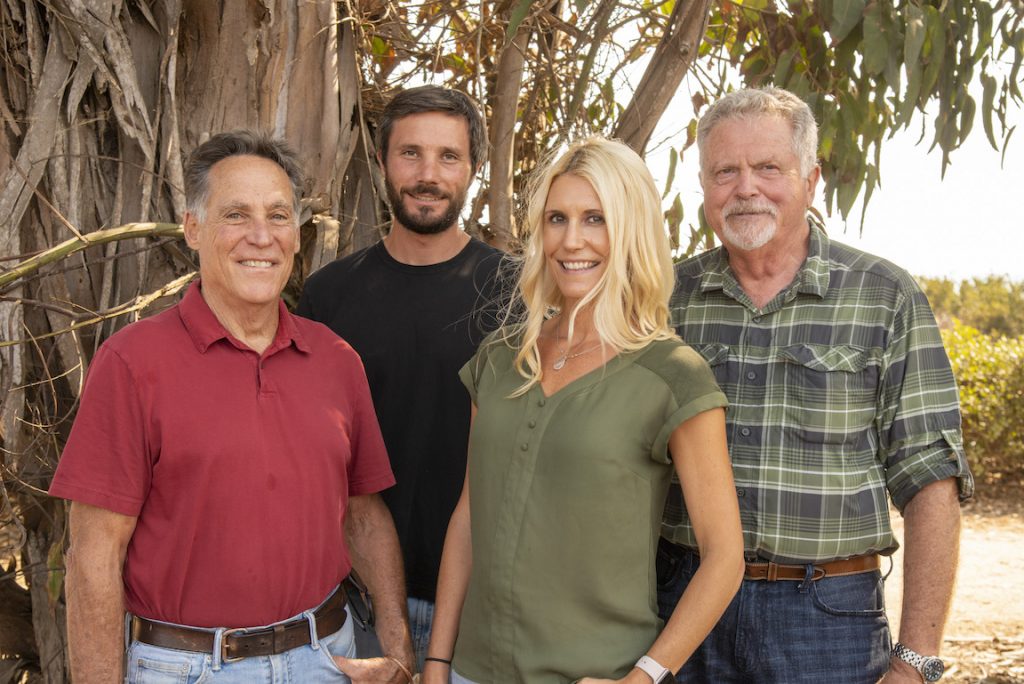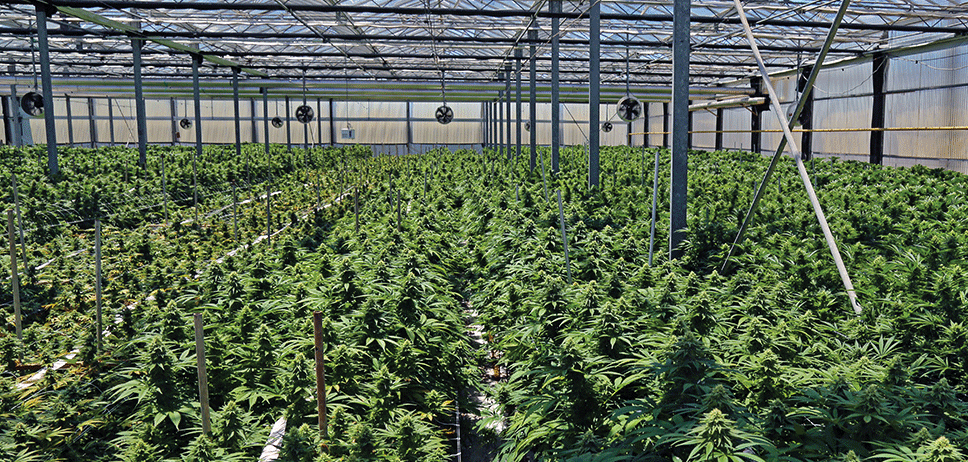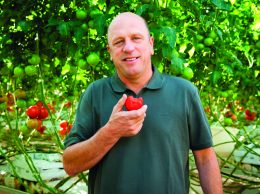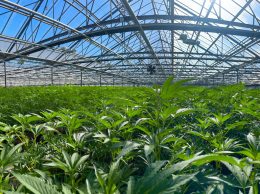Carpinteria cannabis growers strike deal over odor control
IN THIS ARTICLE
- Agribusiness Topic
- Jorge Mercado Author
By Jorge Mercado Thursday, August 26th, 2021

In a joint effort to address cannabis odor in the Carpinteria Valley, the main industry and community groups working on the issue say they’ve reached an agreement that ensures cannabis growers will cooperate with local residents to control the crop’s smell.
The agreement was finalized Aug. 20 between the Cannabis Association for Responsible Growers, or CARP Growers, and the Santa Barbara Coalition for Responsible Cannabis, a group of area residents and farmers of other crops who are concerned about odor and other impacts of cannabis farming.
This agreement, which applies to all CARP Growers member farms, would hold the farms accountable for a detailed odor abatement plan outlining a new expanded odor resource process and a program to develop next-generation odor control technologies.
The coalition and the cannabis growers also agreed to be receptive to the Carpinteria community, which will be encouraged to report and investigate cannabis odor incidents.
Autumn Shelton, a cannabis grower who co-owns Autumn Brands and serves as the president of CARP Growers, told the Business Times both sides worked to reach this agreement for the past 11 months.
“Working together is very key to solving this issue,” she said. “I have been 100% dedicated to making this agreement and solving this odor issue. … It’s extremely important for us to be held accountable and this gives the coalition and community a better feeling that we will be held accountable and we are working toward the best solution.”
More than 20 farms are covered by the agreement. Shelton said most growers in the area have always wanted to solve this issue, but they didn’t have the technology that exists today. Some greenhouses have already incorporated better odor technology with activated carbon filters, she said.
The smell of cannabis has been an issue in Carpinteria since the first licensed farms began growing the crop in 2016. At the time, cannabis cultivation was for medicinal use only. In 2018, voters legalized recreational cannabis in California, and the crop proliferated even more in the Carpinteria Valley, often in greenhouses that once produced cut flowers.
In 2019, the Santa Barbara Coalition for Responsible Cannabis was formed to advocate for closer oversight of cannabis farming and better odor control. The next year, coalition members and Carpinteria residents sued cannabis growers in the area, including Ever-Bloom, Ednigma, Melodious Plots and Saga Farms. The plaintiffs included Greg and Marllus Gandrud, who have since sold their Carpinteria home, citing the cannabis smell as the reason why.
The coalition has also filed appeals with the county against cannabis projects that do not meet its standards.
A little less than a year ago, Shelton decided that talking to the coalition would be a better approach than fighting in court or in regulatory hearings.
“To appeal every single project through this process would slow it all down and by slowing down the process that only makes this go on longer,” she said.
Marc Chytilo, attorney for the coalition, told the Business Times he is “very confident” that this agreement will be fruitful for all sides, especially because of the odor control plan approved by the county, which has four levels of graduated response.
At the fourth and final level, if an odor problem has not gone away, the grower would have to hire a professional engineer or a certified industrial expert to do an evaluation of the best available control technology and make recommendations for additional odor controls.
“It’s not a will they or won’t they, it is that the operator shall install,” Chytilo said.
Cannabis farmers who aren’t part of the CARP Growers group have also worked with the coalition individually on odor issues, Chytilo said.
The technology of refining activated carbon filters is still in its testing phase, Chytilo said, but he is confident it will prove to be effective at scale. And even if it isn’t, he is confident the two sides will continue working together.
“We’re hoping that once this technology proves up, it’ll show that cannabis growers will be able to control their odor to the property line and that’s really the gold standard for us,” Chytilo said.
Avocado growers also had issues with cannabis cultivation in the area, particularly as cannabis growers were worried that pesticides that aren’t allowed on cannabis would drift into their farms and might force them to destroy an entire harvest.
Shade, the owner of an avocado farming company called Shade Farm Management, said these issues are now fully resolved and there were no conflicts in either 2020 or 2021.
“We hammered out our differences,” he said. “Many of the old-time nursery growers who are either their next generation of cannabis growing or they sublet their properties, are also avocado growers so they understand very well the issues being faced.”











